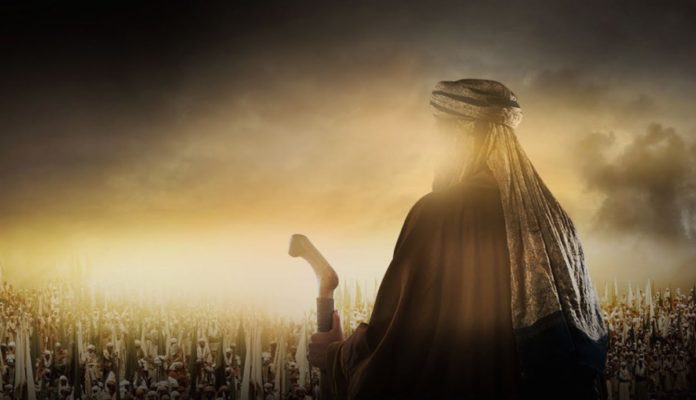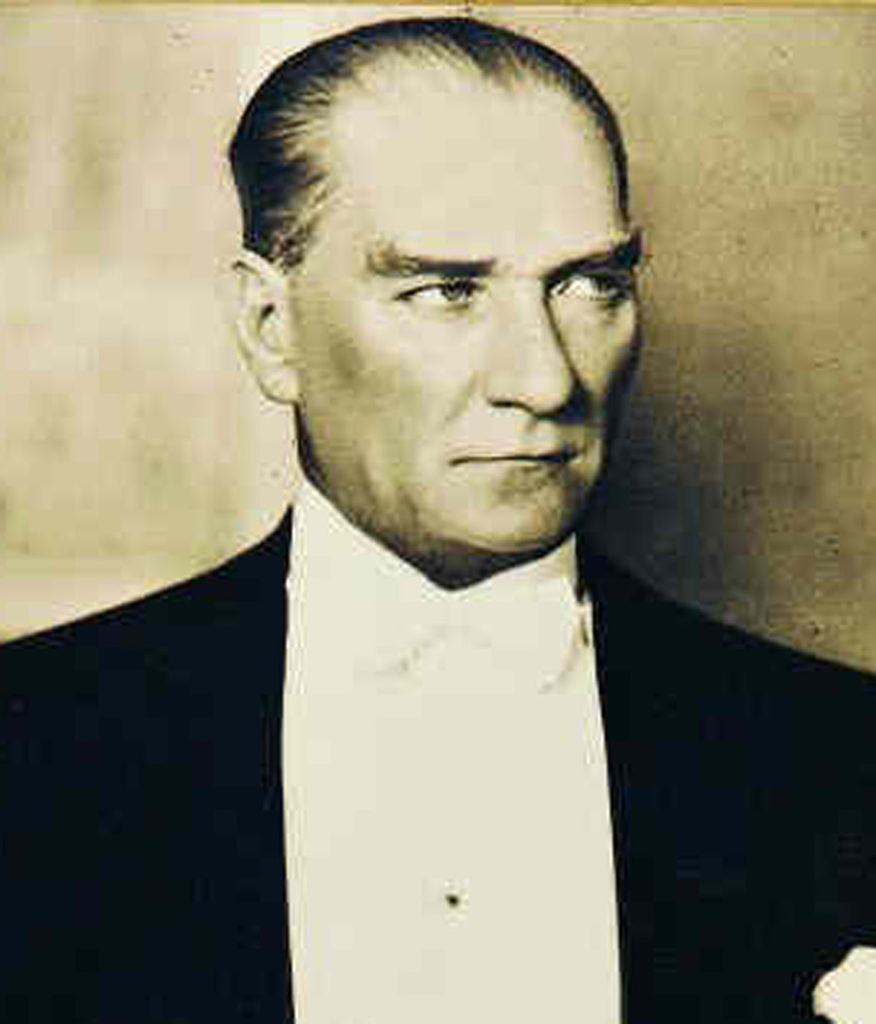
One of the allegations promoted by all political Islam factions, and led by Ḥizb al-Taḥrīr, is that Muslims have fallen behind in civilization after abandoning the caliphate system and importing Western systems that fall within what they call “al-Ṭāghūt” (‘tyranny’), a term that includes, in their belief, all the systems of the world today – from the French Republic to the Kingdom of Saudi Arabia, with but a few short-term and obscurely founded exceptions!
BY SAID NACHID
PARALLEL TO THIS political Islam attempted to establish a salvific vision comprised of two miraculous scenarios: The scenario of the legendary Caliph who suddenly emerges from somewhere within the palace to restore the condition of the people and do justice to the oppressed, not resting until he is assured that no Muslim remains hungry in the land. This scenario combines with a follow-up scenario of another kind, that of an army of Mujāhidīn that suddenly emerges from the east or the west, advancing like a judgment force to eradicate all forms of tyranny, and restore glory to Islam and the Muslims!
Noticeable here is that this utopia, which is an attempt to fill the void created by the collapse of left-wing utopias in the late 1900s, is based on three logical fallacies: First, the Muslims fell behind because they abandoned the Caliphate; Second, the Caliphate is the entire Islamic nation; Third, Islam is best placed to build civil peace and social solidarity among Muslims. We will try to refute each fallacy separately.
The first fallacy – that Muslims fell behind because they abandoned the caliphate
Amidst the fog established by some academic reports, television series, and media programmes, it appears as if this is indeed the case. When the Muslims were tough living under the banner of the Caliphate, their rule extended from Southeast Asia to the Far Maghreb, and it was enough for a woman to call out for help from one of its borderlands, for the horses of conquest to come galloping! However, after Mustafa Kemal Atatürk decided to abolish the Caliphate, the situation of Muslim peoples went from bad to worse: from the catastrophe (the fall of Palestine) of 1948, to the 1967 defeat, to the occupation and destruction of Iraq in 2003, and then to today’s contemporary strife, where most Muslim societies export little else to the world but immigrants and refugees.
On the surface, the equation appears to be correct, since after the Muslims lowered the banner of the caliphate they became weak and debilitated, and other nations fell upon them “as people when eating invite others to share their dish”[1] according to a hadith used by political Islam in the propaganda years.
However, some of this fire can be damped down a little when we discover that the equation is clearly false:
It is no surprise that the Turkish military is today returning to military razzias in step with the decline of secularism
First, since the collapse of the Caliphate until the present day, Turkey has not been a weak and debilitated state. Rather, following the abolition of the Caliphate, and within a short period of time, Turkey was able to transition to a modern industrial state. It is also a fact that the policy of the ‘zero enemy’ that the ruling Justice and Development Party invested in at the beginning of its era, was actually the fruit of Turkish secularism. This closed the page on ‘Ottoman conquests’ and prevented the army from getting involved in any new regional war. It is therefore no surprise that the Turkish military is today returning to the practice of engaging in some military razzias in step with the decline of the power of secularism.
Second, Indonesia – which is the largest Muslim-majority country – is no longer the weak and feeble country that it was during the Middle Ages. Even up to two hundred years ago, Indonesia was an archipelago of primitive and nomadic peoples and tribes. But thanks to the values of nationalism and secularism and modern constitutional principles established under the founding President Ahmed Sukarno, Indonesia has succeeded in building a modern industrial state. And it has done this while preserving its religious, cultural and linguistic diversity. Jakarta, in the times of the Caliphate a matter of mere huts, now boasts more than seventy skyscrapers with airstrips. The term ‘the golden age’ of Islam therefore does not mean much to the largest Muslim-majority country, Indonesia.
Third, the Islamic world’s slide into a period of decadence began centuries before Kemal Atatürk abolished the Caliphate. In fact for the Islamic world the period of the Ottoman Caliphate itself represented part of this phase of decadence, as the Islamic world did not produce any new idea in the fields of science, arts or knowledge during that period. It was therefore only natural that the resistance of the Arab, Kurdish, Amazigh (Berber) and other peoples to the Ottoman occupation intensified with the raised consciousness of the extent of their civilizational backwardness in the face of the industrialized West.
Fourth, Spain succeeded in the Reconquista of Muslim Spain at a time when the Islamic Caliphate was still firmly established. And when the Caliphate fell in the East, Muslim Spain was culturally superior to all other regions of the Islamic world. So we must remain fully aware that the manipulation of consciousness usually begins with the manipulation of the chronological order of events, especially when a long time has passed.
This is another type of fallacy, which needs to be discussed at another time.
The second fallacy, abandoning the caliphate means abandoning one of the fundamental rulings of Islam
One of the forgotten axioms of Sunni Islam is that the Caliphate did not appear in the text nor in the Prophet’s will, but was a human interpretative endeavour (ijtihād) carried out by the Companions of the Prophet after his death. What is more, the term itself was agreed upon in the context of a long-term historical jurisprudential endeavour, in that Abu Bakr was named ‘the Successor (khalīfa) of the Messenger of God’. But when he died, so it was held, one could not say “the Successor of the Successor of the Messenger of God”, in which case they gave ‘Umar Ibn al-Khaṭṭāb the title of ‘Commander of the Faithful’ – a title that remained in use up to the time of ‘Alī ibn Abi Ṭālib’s rule.
It is not Islam that is incompatible with modernity, in the sense of Islam as a belief, but rather the Sharīʻa
The term Caliph then made a comeback under Mu’āwiya where it signified at first ‘the Caliph of the Muslims’, and then came finally to mean ‘the Caliph of God.’ This is the connotation that continued until the final Caliphs of the Ottomans in the twentieth century.
The third fallacy: Islam is the most capable of making Muslims of one man and one heart, like some solid edifice
Religious parties, like other parties, thus accord themselves the right to present themselves with an Islamic label, just as the other parties present themselves with other labels (nationalist, Marxist, liberal, and so on).
There is a fundamental fallacy here, which in turn is based on subsidiary fallacies. Since the death of the Prophet, there has been no era in the history of Islam in which everyone could demonstrate that all Muslims came together under a single command. Rather, you could say that the history of Islamic civilization, like other ancient histories, is replete with strife and civil war, much as the ḥadīth themselves refer to as a “piece of the dark night”.[2] If the Qur’anic discourse carries such facets as mentioned in the Prophet’s hadith, whereby one strikes another as ‘Alī ibn Abi Ṭālib put it, then this does not protect the political arena from conflicting interpretations, which can lead to a contest of slings and arrows.

Suggested Reading
The fact is, it is not Islam that is incompatible with modernity, in the sense of Islam as a belief, but rather the Sharīʻa. Note that the Sharīʻa is not the word of God, nor the word of the Messenger, but rather the words specifically of the legal scholars. The Sharīʻa is the fruit of the jurisprudence of legal scholars extending over decades, employing a conceptual device that reflected the era of imperial expansion. They exploited Qur’ānic and hadith texts, and even the words of the Companions and the Followers,[3] and relied on the mechanism of analogical reasoning (qiyās) in order to make the text say “what it did not say.”
All the political Islam factions in their programs, demands and slogans focus on the Sharīʻa – which is the jurisprudence of the legal scholars rather than the actual Islamic creed which is the essence of Islam – since it is the Sharīʻa that provides them with the means to control minds and the route to power.
The question therefore remains: what its is that the supporters of the Caliphate want when they call for the return of the Caliphate? We could take the generous view and assume that they want to replicate in full the experience of ‘Umar Ibn al-Khaṭṭāb – other than his assassination in the mosque – or the experience of ‘Uthmān ibn ‘Affān – but without his murder during the period of the civil strife (al-fitna) – or the experience of ‘Alī ibn Abi Ṭālib – but without his being stabbed to death with a sword, and so on. They want the Caliphate back as it was with the Umayyads, the Abbasids and the Ottomans, but only after passing over all the scenes of murders that took place among the courtiers, or the scenes of strife between sects, tribes, clans and various groups in street wars!
So what is it that they want? They want the Caliphate to return only after purging it of all scenes unseemly to the viewer! That’s all there is to it.
[1] “The people will soon summon one another to attack you as people when eating invite others to share their dish” (الأُمَمُ أَنْ تَدَاعَى عَلَيْكُمْ كَمَا تَدَاعَى الأَكَلَةُ إِلَى قَصْعَتِهَا ) Sunan Abi Dawud 4297 (Ed.)
[2] “Turbulence which would be like a part of the dark night” (فِتَنًا كَقِطَعِ اللَّيْلِ الْمُظْلِمِ) as in Ṣaḥīḥ Muslim 118 et alibi (Ed.)
[3] See the Glossary for these terms.


